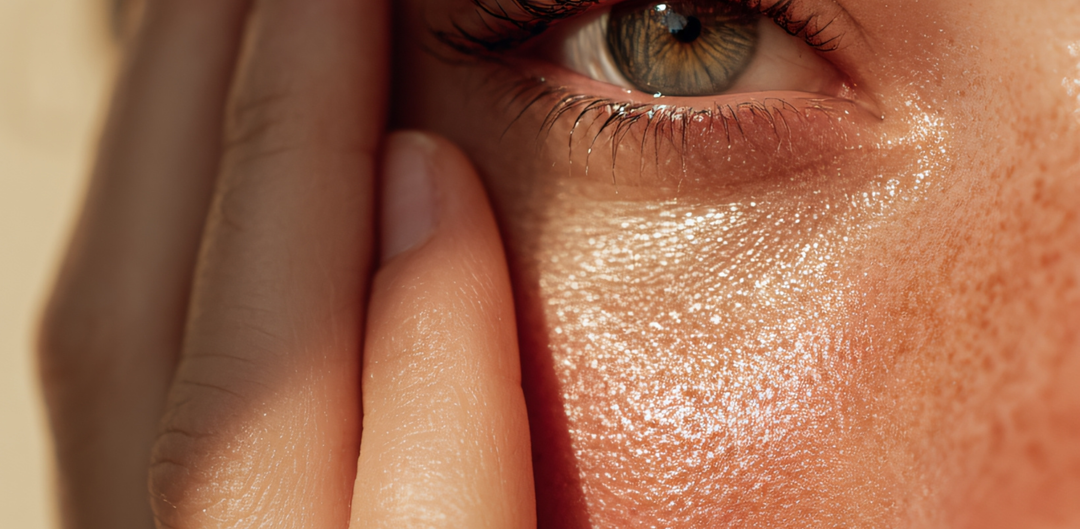Chapter Two — Arrival
Written by Kirsty Harkness
(Previously: After final exams, I joined my friend Jess on a daring journey to a mission hospital deep in the heart of Zaire…)
I wasn’t supposed to be here.
Not in Zaire.
Not in a brick hospital with no power, learning to suture under the light of a car battery. Not standing beside a surgeon named Seamus, who looked like he belonged in a James Herriot novel but could remove a ruptured appendix with a teaspoon and a prayer, and never seemed the least bit rattled. He was so laid back; he was practically horizontal. But here I was.
Back in New Zealand, I’d just sat my final nursing exams. I’d been unwell on the day, struggling to focus on the morning exams, and unable to finish the afternoon.
My entire graduation now hinged on getting at least a 70% pass rate. And I wouldn’t know the results for weeks.
I was so close to finishing I could already picture myself in my first official nursing uniform. But! I wasn’t allowed to register as a nurse until I turned twenty. That was the law. And I was still nineteen.
Stuck in this strange in-between: not quite a student, not yet a nurse, and not ready to settle down.
So, I made a decision that would change my life.
I knew of a mission hospital deep in the centre of Zaire, where my friend Jessica’s family were stationed. Her mum, Lily, was the senior nurse. Her dad, Herb, oversaw everything from the hospital water tanks, to teaching at the school, to ensuring the Toyota Land Cruiser would get us through days of travel.
Jess was in her second year of nursing training and was already heading back there for a gap year. She’d grown up in Africa. Helping, living, being brave. And I thought, why not join her for a taste of this courage and adventure too?
I wanted real experience. Not just textbooks and lab coats. I wanted real patients, real challenges, real stakes. Let’s be honest: I was stuck in nursing limbo. And I don’t do well in waiting rooms. I was restless, ready to grow, to learn, to chase something bigger.
The road to the village wasn’t really a road at all. It was more like a suggestion… a series of dry riverbeds and deeply rutted paths that forced us to crawl forward at walking pace. Bobbing our heads like we were in some kind of silent disco.
Once we entered the Zaire, we drove for three days through plains of red dust, dodging potholes and axle-snapping trenches.
With the windows down and the sun scorching our arms.
Flame lilies burst in orange beside vivid purple jacarandas, the whole landscape so vibrant it felt like a painting too beautiful to be real. The plains stretched wide beneath an endless sky, and although the engine was always running, it often felt like we were the only people in the world.
Until we stopped. Then, as if from nowhere, figures would emerge from the bush or the trees, quiet and curious, reminding us we were never truly alone.
There were no road signs, no fuel stations. Just us with multiple fuel canisters strapped to the roof racks, and the occasional trade truck groaning under the weight of fifty passengers clinging to the roof like overripe fruit.
On our first day of driving, we ran alongside the border of a neighbouring country. The only thing dividing one country from the next, apart from a few road barriers, were well-worn paths and centuries-old trees.
Herb, ever the pragmatist, stopped the Toyota Land Cruiser at the base of a long hill and turned to face us in the back.
“Right,” he said. “This is serious now. You need to know what to do if we get ambushed.”
My stomach dropped. Ambushed?
“There’ve been incidents on this stretch. Families executed for stopping. Rebels wanting the vehicle and whatever’s in it,” Herb said, voice calm but firm. “If I yell ‘DOWN,’ you drop. Immediately.”
He then pointed out a few bullet holes on the side of the Land Cruiser. I had thought he was joking. He wasn’t.
“We’ve packed the gear to form a barrier, it’ll protect you. Practice now.”
It was chaos. Jess and I knocked heads, someone landed on my back. We had to work out who went where so it was fluid.
We laughed, too much, too loud. It was nervous laughter.
We practised again. And again. Until it felt real.
Fortunately, we didn’t get shot at on this stretch... On this day, anyway.
Safely away from the borderlands, we travelled north into what felt like much friendlier territory. We crossed rivers with water up to the windows. Herb often used a stick to check the depth of puddles. Except when he didn’t — and the entire front of the vehicle disappeared into a mud trench.
We had to clamber down into the sludge, unhook the trusty winch from the front of the Land Cruiser, and haul it to the nearest tree. Or sometimes to a group of curious locals who’d appeared from nowhere, happy to lend their strength and smiles as we pulled ourselves free.
But I loved it. The axle-snapping potholes, the rebel ambush drills, the muddy river crossings… I was alive. Somewhere between the fear and the thrill, I knew I’d made the right choice in coming here.
On the third day we reached a wide river at the end of a lake.
There was no bridge.
A floating barge waited on the opposite bank, barely more than planks lashed to old oil drums and faith. It wasn’t much wider than our Land Cruiser and bobbed like a cork with the current. A group of men waved from across the water, then slowly started winching the barge toward us with a thick rope strung between two leaning posts.
“This is the last crossing,” Herb said. “Once we’re over, we’re in.”
The raft wasn’t just a way in, it was protection. A boundary. A bottleneck. One way in, one way out. If the rope was pulled in, the hospital and the village were safe from what lay further south.
But would it also be a trap one day? What of the lands to the north?
There was no leaving in a hurry once you crossed.
The barge reached us with a hollow thud, and the Land Cruiser rolled on. Heavy with gear, red dust, and the weight of everything we didn’t yet know. As we floated across, I stared at the far shore and felt the shift.
Months of planning. Malaria meds making our tummies churn. Vaccination cards in our pockets showing better protection than the President on a campaign trail.
Weeks of travelling north, across three African countries.
And now, we were here.
I was crossing into something real. And it was too late to change my mind.
The village wasn’t marked by signs or gates, just a shift in energy. Clay homes tucked beneath mango trees and flame lilies. Barefoot children running beside us, the smell of charcoal and maize in the air. The land was red. The kind of red that marks your shoes, your skin, your soul.
A place that would mark my heart and memories forever.
As we drove through the village Lily turned from the front seat with a beaming smile. “We’re home,” she said.
The word felt strange here in this foreign, beautiful world, but not unwelcome.
The hospital stood like a silent sentinel, a low, long brick building with iron shutters and tired-looking doors. There were no ambulances, no flashing lights, no waiting rooms full of chairs.
Just people sitting on the grass outside, waiting.
This wasn’t a placement.
There was no staff rotation.
And I was already in deep.
Next: Chapter Three - Welcome. Where I meet the team who would shape my entire time in Africa… and one small girl who would change my life.
To protect privacy, names have been changed but these are all true stories.
With thanks to my editor and sounding boards. Sometimes it takes another set of eyes to help find the right words. I’ve always been better at feeling a story than finessing every sentence.
Glossary Note: Zaire
At the time of this story, the country now known as the Democratic Republic of the Congo (DRC) was officially called Zaire. From 1971 to 1997, the nation bore that name under the rule of President Mobutu Sese Seko. Today, the same region is referred to as the DRC, but for historical accuracy and personal authenticity, I’ve used “Zaire” throughout this book to reflect the time and place as I experienced it.
About the Author
Kirsty Harkness is the founder of Hark & Zander, a premium natural skincare brand inspired by care, courage, and connection. Before launching her business, Kirsty worked as a nurse, photographer, and vineyard owner — a path that’s taken her from remote African hospitals to the heart of New Zealand’s wine country. Founder’s Footsteps shares true stories from a very different life, written for her daughter and anyone who’s ever felt the pull of purpose, people, and place.





